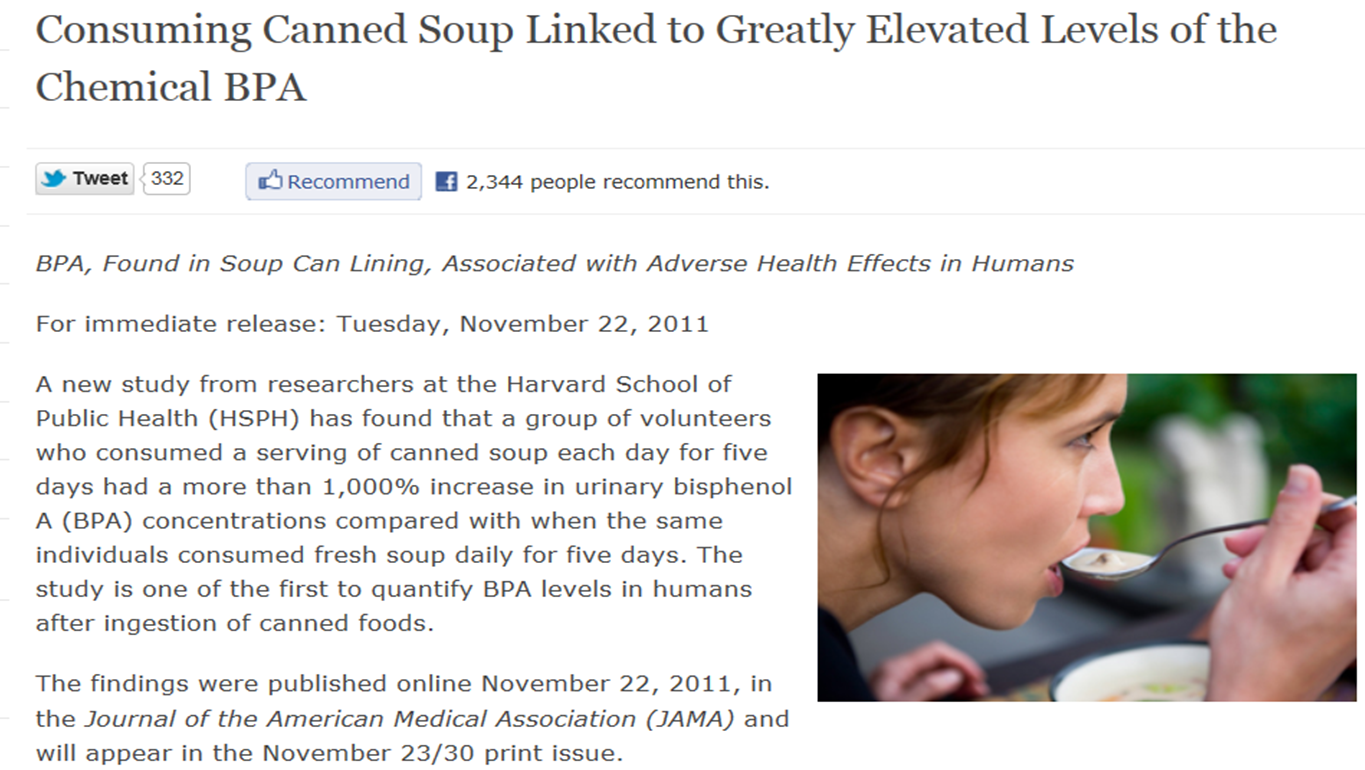Many people believe that choosing soup over other meals is a healthier choice. Those of you who cook might had notice that in order to get a tasty soup, lots of salt needs to be added to the recipe. Although I love soup, especially during the winter, I try to eat it in moderation because it might represent a risk for my health and the health of my family.
Last month your classmate Vita shared with me this new article about the presence of Bisphenol A (BPA) in canned soup. BPA is an organic chemical that is usually associated with the production of plastics. Whenever you go out shopping, you can find many products clearly specifying BPA free. Manufacturers of products such as baby bottles and food containers will try to keep these products BPA free because it has been associated with and increased health hazard, especially for babies and young children. BPA has hormone-like properties mimicking estrogen and affecting many processes in the body. It is believed that the most severe effects occur early in development, and lots of studies are being currently conducted to identify safety levels for this compound.
Below you can find a preview to the article published by Harvard School of Public Health. Please, review the article focusing on increased risk, study strengths and weaknesses, and your thoughts about this topic. The full article can be accessed from http://www.hsph.harvard.edu/news/press-releases/2011-releases/canned-soup-bpa.html. Enjoy!








